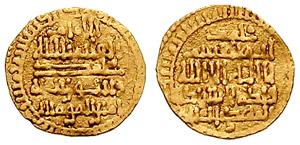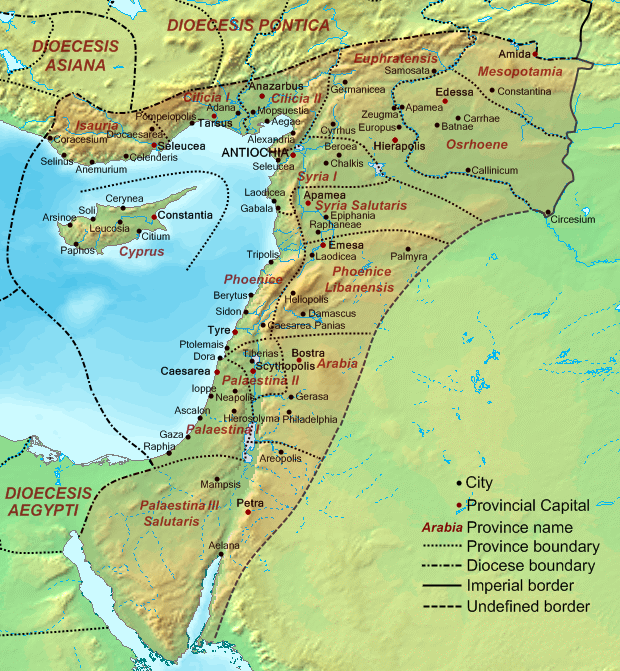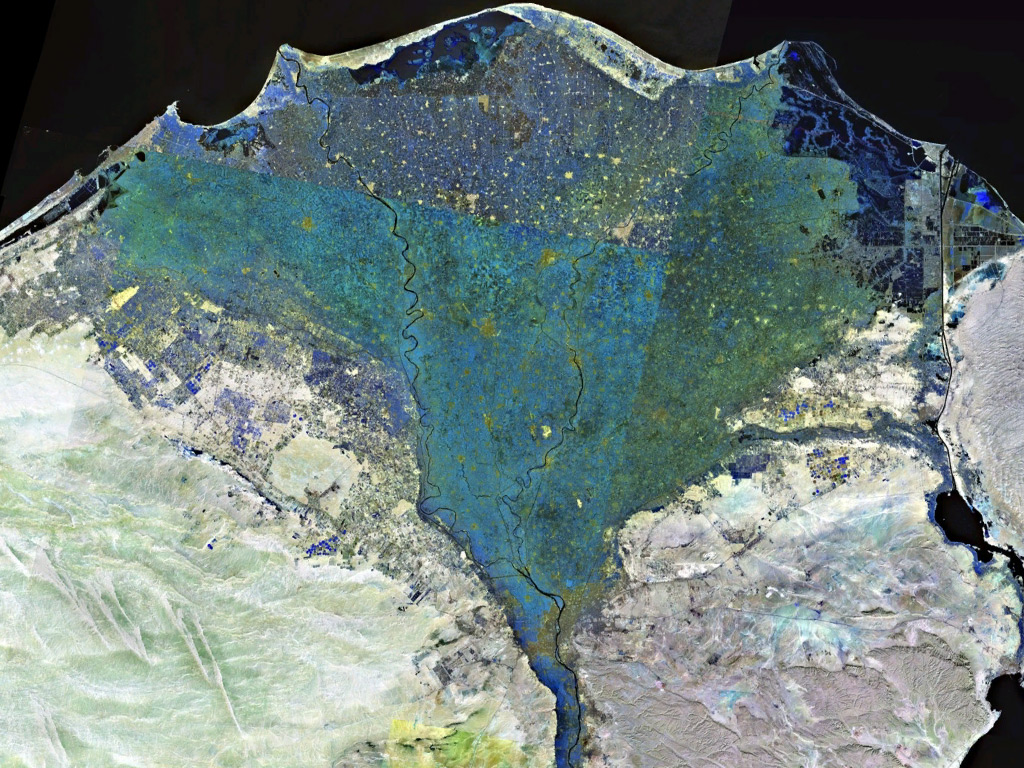|
Fatimid Conquest Of Egypt
The Fatimid conquest of Egypt took place in 969, as the troops of the Fatimid Caliphate under the general Jawhar captured Egypt, then ruled by the autonomous Ikhshidid dynasty in the name of the Abbasid Caliphate. The Fatimids launched repeated invasions of Egypt soon after coming to power in Ifriqiya (modern Tunisia and eastern Algeria) in 909, but failed against the still strong Abbasid Caliphate. By the 960s, however, while the Fatimids had consolidated their rule and grown stronger, the Abbasid Caliphate had collapsed, and the Ikhshidid regime was facing prolonged crisis: foreign raids and a severe famine were compounded by the death in 968 of the strongman Abu al-Misk Kafur. The resulting power vacuum led to open infighting among the various factions in Fustat, the capital of Egypt. The atmosphere of crisis was deepened by the simultaneous advances of the Byzantine Empire against the Muslim states of the Eastern Mediterranean. Meanwhile, Fatimid agents operated openly in Egyp ... [...More Info...] [...Related Items...] OR: [Wikipedia] [Google] [Baidu] |
Fatimid Caliphate
The Fatimid Caliphate was an Isma'ilism, Ismaili Shia Islam, Shi'a caliphate extant from the tenth to the twelfth centuries AD. Spanning a large area of North Africa, it ranged from the Atlantic Ocean in the west to the Red Sea in the east. The Fatimid dynasty, Fatimids, a dynasty of Arab origin, trace their ancestry to Muhammad's daughter Fatimah, Fatima and her husband Ali, ‘Ali b. Abi Talib, the first Imamate in Shia doctrine, Shi‘a imam. The Fatimids were acknowledged as the rightful imams by different Isma'ilism, Isma‘ili communities, but also in many other Muslim lands, including Persia and the adjacent regions. Originating during the Abbasid Caliphate, the Fatimids conquered Tunisia and established the city of "Mahdia, al-Mahdiyya" ( ar, المهدية). The Ismaili dynasty ruled territories across the Mediterranean coast of Africa and ultimately made Egypt the center of the caliphate. At its height, the caliphate included – in addition to Egypt – varying ... [...More Info...] [...Related Items...] OR: [Wikipedia] [Google] [Baidu] |
Abu Al-Misk Kafur
Abu al-Misk Kafur () (905–968), also called al-Laithi, al-Suri, al-Labi was a dominant personality of Ikhshidid Egypt and Syria."Kāfūr, Abu'l Misk al-Ikhsidi." ''E.J. Brill's first encyclopaedia of Islam 1913-1936''. Edited by: M. Th. Houtsma, E. van Donzel. Brill, 1993. p. 623 Originally a black slave, probably from Nubia, he was made vizier of Egypt, becoming its ''de facto'' ruler from 946 after the death of his master, Muhammad bin Tughj. Thereafter, he ruled the Ikshidid domains—Egypt and southern Syria (including Damascus)—until his death in 968.Abū al-Misk Kāfūr." Encyclopædia Britannica. 2008. Encyclopædia Britannica Online. Jul. 2008 Biography Kafur is described by the sources variously as coming from Abyssinia (Ethiopia), the Bilad al-Sudan (Land of the Blacks) or Nubia, the latter being the most probable. Muhammad ibn Tughj, the founder of the Ikhshidid dynasty of Egypt, purchased him as a slave in 923. He is recorded as having a dark complexion and bei ... [...More Info...] [...Related Items...] OR: [Wikipedia] [Google] [Baidu] |
Saladin
Yusuf ibn Ayyub ibn Shadi () ( – 4 March 1193), commonly known by the epithet Saladin,, ; ku, سهلاحهدین, ; was the founder of the Ayyubid dynasty. Hailing from an ethnic Kurdish family, he was the first of both Egypt and Syria. An important figure of the Third Crusade, he spearheaded the Muslim military effort against the Crusader states in the Levant. At the height of his power, Ayyubid territorial control spanned Egypt, Syria, Upper Mesopotamia, the Hejaz, Yemen, the Maghreb, and Nubia. Alongside his uncle Shirkuh, a military general of the Zengid dynasty, Saladin was sent to Egypt under the Fatimid Caliphate in 1164, on the orders of Nur ad-Din. With their original purpose being to help restore Shawar as the to the teenage Fatimid caliph al-Adid, a power struggle ensued between Shirkuh and Shawar after the latter was reinstated. Saladin, meanwhile, climbed the ranks of the Fatimid government by virtue of his military successes against Crusader assault ... [...More Info...] [...Related Items...] OR: [Wikipedia] [Google] [Baidu] |
Fall Of The Fatimid Caliphate
The Fatimid Caliphate was an Ismaili Shi'a caliphate extant from the tenth to the twelfth centuries AD. Spanning a large area of North Africa, it ranged from the Atlantic Ocean in the west to the Red Sea in the east. The Fatimids, a dynasty of Arab origin, trace their ancestry to Muhammad's daughter Fatima and her husband ‘Ali b. Abi Talib, the first Shi‘a imam. The Fatimids were acknowledged as the rightful imams by different Isma‘ili communities, but also in many other Muslim lands, including Persia and the adjacent regions. Originating during the Abbasid Caliphate, the Fatimids conquered Tunisia and established the city of " al-Mahdiyya" ( ar, المهدية). The Ismaili dynasty ruled territories across the Mediterranean coast of Africa and ultimately made Egypt the center of the caliphate. At its height, the caliphate included – in addition to Egypt – varying areas of the Maghreb, Sudan, Sicily, the Levant, and the Hijaz. Between 902 to 909 the foundatio ... [...More Info...] [...Related Items...] OR: [Wikipedia] [Google] [Baidu] |
Qarmatian
The Qarmatians ( ar, قرامطة, Qarāmiṭa; ) were a militant Isma'ili Shia movement centred in al-Hasa in Eastern Arabia, where they established a religious-utopian socialist state in 899 CE. Its members were part of a movement that adhered to a syncretic branch of Sevener Ismaili Shia Islam, and were ruled by a dynasty founded by Abu Sa'id al-Jannabi, a Persian from Jannaba in coastal Fars. They rejected the claim of Fatimid caliph Abdallah al-Mahdi Billah to imamate and clung to their belief in the coming of the Mahdi, and they revolted against the Fatimid and Abbasid Caliphates. Mecca was sacked by a Qarmatian leader, Abu Tahir al-Jannabi, outraging the Muslim world, particularly with their theft of the Black Stone and desecration of the Zamzam Well with corpses during the Hajj season of 930 CE. Name The origin of the name "Qarmatian" is uncertain. According to some sources, the name derives from the surname of the sect's founder, Hamdan Qarmat. The name ''qarmat ... [...More Info...] [...Related Items...] OR: [Wikipedia] [Google] [Baidu] |
Bilad Al-Sham
Bilad al-Sham ( ar, بِلَاد الشَّام, Bilād al-Shām), often referred to as Islamic Syria or simply Syria in English-language sources, was a province of the Rashidun, Umayyad, Abbasid, and Fatimid caliphates. It roughly corresponded with the Byzantine Diocese of the East, conquered by the Muslims in 634–647. Under the Umayyads (661–750) Bilad al-Sham was the metropolitan province of the Caliphate and different localities throughout the province served as the seats of the Umayyad caliphs and princes. Bilad al-Sham was first organized into the four '' ajnad'' (military districts; singular ''jund'') of Filastin (Palestine), al-Urdunn (Jordan), Dimashq (Damascus), and Hims (Homs), between 637 and 640 by Caliph Umar following the Muslim conquest. The ''jund'' of Qinnasrin was created out of the northern part of Hims by caliphs Mu'awiya I () or Yazid I (). The Jazira (Upper Mesopotamia) was made an independent province from the Mesopotamian part of Qinnasrin by ... [...More Info...] [...Related Items...] OR: [Wikipedia] [Google] [Baidu] |
Khutbah
''Khutbah'' ( ar, خطبة ''khuṭbah'', tr, hutbe) serves as the primary formal occasion for public preaching in the Islamic tradition. Such sermons occur regularly, as prescribed by the teachings of all legal schools. The Islamic tradition can be formally observed at the '' Dhuhr'' (noon) congregation prayer on Friday. In addition, similar ''sermon''s are called for on the two festival days and after Solar and Lunar Eclipse prayer. Origins and definition Religious narration (including sermons) may be pronounced in a variety of settings and at various times. The ''khutbah'', however, refers to ''khutbah al-jum'a'', usually meaning the address delivered in the mosque at weekly (usually Friday) and annual rituals. Other religious oratory and occasions of preaching are described as ''dars'' (a lesson) or ''waz'' (an admonition), and their formats differ accordingly."Khutba", ''Encyclopedia of Islam and the Muslim World'' The ''khutbah'' originates from the practice of th ... [...More Info...] [...Related Items...] OR: [Wikipedia] [Google] [Baidu] |
Friday Prayer
In Islam, Friday prayer or Congregational prayer ( ar, صَلَاة ٱلْجُمُعَة, ') is a prayer ('' ṣalāt'') that Muslims hold every Friday, after noon instead of the Zuhr prayer. Muslims ordinarily pray five times each day according to the sun's sky path regardless of time zones. ''Jumu’ah'' means Friday in the Arabic language. In many Muslim countries, the weekend is inclusive of Fridays, while in others, Fridays are half-days for schools and some workplaces. Meaning It is one of the most exalted Islamic rituals and one of its confirmed obligatory acts. Obligation There is consensus among Muslims regarding the Friday prayer (''salat al-jum‘ah'') being ''wajib'' - required - in accordance with the Quranic verse, as well as the many traditions narrated both by Shi’i and Sunni sources. According to the majority of Sunni schools and some Shiite jurists, Friday prayer is a religious obligation, but their differences were based on whether its obligation is condit ... [...More Info...] [...Related Items...] OR: [Wikipedia] [Google] [Baidu] |
Nile River
The Nile, , Bohairic , lg, Kiira , Nobiin: Áman Dawū is a major north-flowing river in northeastern Africa. It flows into the Mediterranean Sea. The Nile is the longest river in Africa and has historically been considered the longest river in the world, though this has been contested by research suggesting that the Amazon River is slightly longer.Amazon Longer Than Nile River, Scientists Say Of the world's major rivers, the Nile is one of the smallest, as measured by annual flow in cubic metres of water. About long, its covers eleven countries: the |
Jihad
Jihad (; ar, جهاد, jihād ) is an Arabic word which literally means "striving" or "struggling", especially with a praiseworthy aim. In an Islamic context, it can refer to almost any effort to make personal and social life conform with God's guidance, such as struggle against one's evil inclinations, proselytizing, or efforts toward the moral betterment of the Muslim community (''Ummah''), though it is most frequently associated with war. In classical Islamic law (''sharia''), the term refers to armed struggle against unbelievers, while modernist Islamic scholars generally equate military ''jihad'' with defensive warfare. In Sufi circles, spiritual and moral jihad has been traditionally emphasized under the name of ''greater jihad''. The term has gained additional attention in recent decades through its use by various insurgent Islamic extremist, militant Islamist, and terrorist individuals and organizations whose ideology is based on the Islamic notion of ''jihad''. T ... [...More Info...] [...Related Items...] OR: [Wikipedia] [Google] [Baidu] |
Aman (Islam)
( ar, امان, , safety, protection, safe conduct) is the Islamic law concept of guaranteeing the security of a person (who is then called ) or a group of people for a limited time. It can represent the assurance of security or clemency granted to enemies who seek protection, and can take the form of a document of safe-conduct for a non-Muslim or (enemy alien). (Re. an ''aman'' taking the shape of a written document.) Evolution The concept has pre-Islamic origins, being traced to the practice of among the Arab tribes, which extended a tribe's protection over an—often outlawed—member of a different tribe. Muhammad extended tribal solidarity and protection to cover the entirety of the Muslim community, so the promise of safety could be extended by Muslims to non-Muslims, and formed the basis of the covenants of security () issued to cities or peoples who submitted to the nascent Muslim caliphate, and which rendered these groups protected () under Islamic law. In later tim ... [...More Info...] [...Related Items...] OR: [Wikipedia] [Google] [Baidu] |
Nile Delta
The Nile Delta ( ar, دلتا النيل, or simply , is the delta formed in Lower Egypt where the Nile River spreads out and drains into the Mediterranean Sea. It is one of the world's largest river deltas—from Alexandria in the west to Port Said in the east, it covers of Mediterranean coastline and is a rich agricultural region. From north to south the delta is approximately in length. The Delta begins slightly down-river from Cairo. Geography From north to south, the delta is approximately in length. From west to east, it covers some of coastline. The delta is sometimes divided into sections, with the Nile dividing into two main distributaries, the Damietta and the Rosetta, flowing into the Mediterranean at port cities with the same name. In the past, the delta had several distributaries, but these have been lost due to flood control, silting and changing relief. One such defunct distributary is Wadi Tumilat. The Suez Canal is east of the delta and enters the coa ... [...More Info...] [...Related Items...] OR: [Wikipedia] [Google] [Baidu] |








